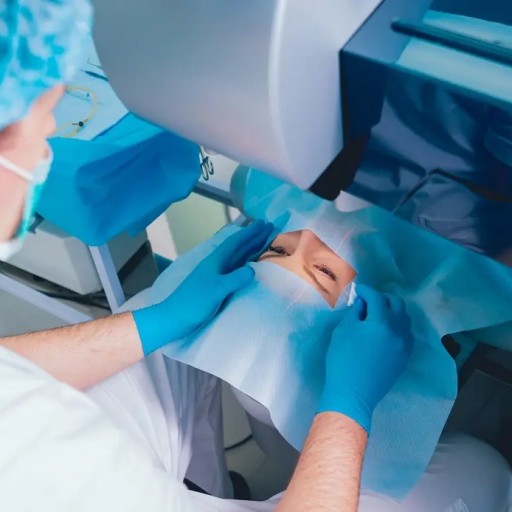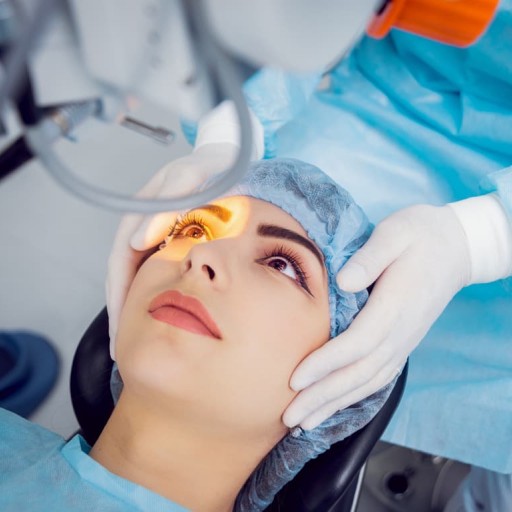Laser Eye Surgery: Your New Option for Vision Restoration
Laser Eye Surgery—this is a term that many of us have heard about but aren't exactly sure how it works. To understand this, we need to first learn about the cornea, which is the eye’s outer layer. Sometimes, this layer changes shape, causing vision problems like myopia or astigmatism.
Layer eye surgery fixes that by reshaping the cornea. How it reshapes depends on the vision issue being treated. It can correct both nearsightedness and farsightedness. The surgery is fast, and you’re awake the whole time. It’s typically painless—if it hurts, something might be wrong.
What is laser eye surgery? (LASIK or PRK)
LASIK, which stands for laser-assisted in situ keratomileusis, is the most widely performed surgery in the field of refractive eye surgery. The devices and techniques have undergone enormous changes since the patent in 1989. The procedure involves using lasers to modify the contours of the cornea. It has become the most effective way to restore vision.
The American Academy of Ophthalmology reports that over 150 million people in the United States are wearing eyeglasses or contact lenses to correct refractive errors. Refractive errors happen when light doesn't bend properly to focus on the retina. This often comes down to the shape of the cornea.
●Farsightedness (Hyperopia)
People with farsightedness can easily see things far away but struggle with things up close. The cornea, in this case, is shallow. Laser corrective procedures can fix this by giving the cornea a steeper curve.
●Nearsightedness (Myopia)
People with nearsightedness have good close-up vision but can’t see things in the distance. This happens when the cornea is too steep. Laser surgery can reshape the cornea and correct the problem.
●Astigmatism
Astigmatism occurs when the eye is shaped more like a football than a soccer ball. This irregular curvature can sometimes be corrected through laser surgery.

Who is unsuitable for laser eye surgery?
Not everyone is a good fit for laser eye surgery. You might not be suitable if:
●Your eye prescription has changed in the last year.
●You take medications that can affect your vision.
●You’re in your 20s or younger, although some say under 18 is okay.
●You have thin corneas, which might not hold up after surgery.
●You're pregnant or nursing.
Why do so many people go for laser eye surgery?
There is a lot of hype behind laser eye surgery, and for good reason. The greatest benefit is that people no longer have to wear corrective eyewear to see clearly. So are you contemplating going for laser eye surgery?
You may do so for the following reasons.
●You wear glasses but are unable to wear contact lenses.
●You wish to go for activities like sports that require people not to wear eyewear or lenses.
●You want the convenience of not having to use corrective eyewear.

Risks and complications of laser eye surgery
Some eye conditions can increase the chances of complications after laser eye surgery. These include:
●Eye infections like keratitis or ocular herpes.
●Significant cataracts, which prevent vision correction after surgery.
●Glaucoma.
●Large pupils.
●Keratoconus, a condition that weakens the cornea over time.
As with any surgery, complications can happen. Here are a few:
●Dry Eyes
Up to 95% of people may experience dry eyes after surgery. Your eyes produce fewer tears, but lubricating drops can help.
●Glare or Halo
Around 20% of patients might notice glare, halos, or light sensitivity after the procedure.
●Double or Blurry Vision
About 1 in 50 people report blurriness or a gritty feeling in the eyes. This might be caused by a condition called "sands of Sahara" syndrome.
Other possible issues include:
●Eye infections.
●Problems with the corneal flap.
●Red or bloodshot eyes.
Most symptoms should go away after a few days. If they don’t, it’s time to see a doctor.

What to expect during surgery
According to the FDA, laser eye surgery usually takes less than 30 minutes. Some say it’s about 5 minutes per eye. So here’s what happens during the procedure.
Firstly, you’ll have to take a seat in a special chair that tilts all the way back towards laser equipment and a computer screen. The staff will clean the area around your eye and use numbing drops.
Next, a metal instrument called a lid speculum will be used to keep your eyelids wide open. It isn't as horrifying as it sounds and is done without any stress to the patient. Finally, the laser enters and makes a tiny flap in your cornea, which the surgeon lifts afterwards.
You’ll stare at a light to keep your eye still while the laser does its work. Next, the laser reshapes the surface of your cornea. Finally, the surgeon places the flap back and adds a shield to protect your eye.
Recovery time for laser eye surgery
The FDA mentions that you may experience burning, itching, or the feeling that something is in the eye during the postoperative period. Taking mild pain relief medications like acetaminophen as suggested by the surgeon may help.
You’ll also get an eye shield to protect the eye operated on. This is done since there are no stitches holding the flap in place. The eye shield comes in handy when falling asleep since it prevents inadvertent rubbing or pressure on the eye.
Most individuals require 2-3 days off from work to heal from the operation. An appointment must be made within 24–48 hours after surgery for a check-up. The doctor will ensure your eyes are healing properly. After that, you'll have a few more follow-up visits over the next 6 months.
It can take up to 6 months for your vision to fully settle after laser eye surgery. You might notice some ups and downs with your eyesight during this time, but don’t panic—that’s totally normal. In fact, it’s pretty common for vision to fluctuate in those first few months.
Sometimes, the laser may over- or under-correct your vision. If that happens, you might need a touch-up, known as an enhancement, to fine-tune your sight. And keep in mind that even after getting that perfect 20/20, your vision can slowly decline again over the years.
OTHER NEWS
-
- Cholesterol and Diet: Foods That Help Lower Your Levels
- By Prodosh Kundu 10 Sep,2024

-
- Should I continue brushing if my gums bleed?
- By Dr. James 21 Mar,2024

-
- Living with Lung Cancer: Managing Symptoms and Side Effects
- By Prodosh Kundu 18 Sep,2024

-
- Living with Bone Marrow Cancer: Tips for Patients and Families
- By Prodosh Kundu 18 Sep,2024

-
- How to Reduce Your Risk of Lung Cancer: Expert Tips?
- By Prodosh Kundu 18 Sep,2024

-
- How to Naturally Lower Your Cholesterol Levels
- By Prodosh Kundu 09 Sep,2024

-
- Beauty and Good Diet: Here is What Research Reveals
- By Fatima Amir 08 May,2024

-
- The Link Between Acid Reflux And Esophageal Cancer
- By Prodosh Kundu 15 Oct,2024

-
- Understanding Bone Marrow Cancer Causes, Symptoms, and Treatment
- By Prodosh Kundu 18 Sep,2024

-
- Understanding the Different Types of Medical Health Insurance Plans
- By Prodosh Kundu 28 Aug,2024

-
- Knowledge About Lower Back Pain
- By Jason 05 Mar,2024

-
- Rehabilitation training after fracture involves reduction
- By Jason 05 Mar,2024

 1
1 1
1